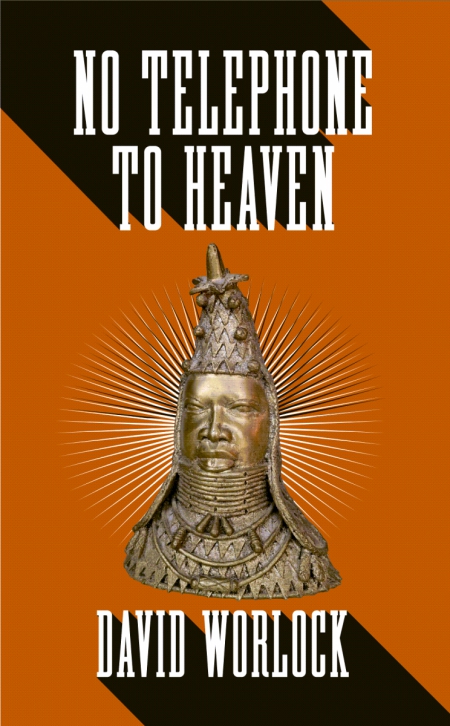No Telephone to Heaven
Product Details
- Format:
- Paperback / softback
- ISBN:
- 9781738497027
- Published:
- 20th Feb 2025
- Publisher:
- Marble Hill
- Dimensions:
- 326 pages -
Product Description
No Telephone to Heaven
Lagos 1977, the eve of FESTAC, Nigeria’s great celebration of African culture and arts. The body of a young man, Marcus Diello, is found. He has been brutally murdered.
Cyril, a police inspector dealing with his first murder case in the capital since arriving from Benin, faces pressures from his bosses who want the murder swept under the carpet - and from Marcus’s friends and colleagues who demand explanations. Why was an innocent life taken? Was it a ritual murder or robbery?
On the back of Lagos buses, it says: “God’s judgement, no appeal - no telephone to heaven.” With help from Marcus’s three friends and a young Englishman with his own secrets, Cyril is caught up in a world of power politics, gun-running, antiquities smuggling and African nationalism as he attempts to discover why an innocent man bled to death on a Lagos pavement in the early hours of the morning.
- David Worlock follows his moving memoir, Facing Up To Father, the pleasures and pains of a Cotswold childhood with a dive into crime fiction.
- Set in the 1970s, some years after the end of the civil war, this investigation into the murder of a young man is based on a true story.
- The unexplained death of Marcus Diello has haunted David over the decades. This is his solution to the mystery.
The Story Behind...
No Telephone to Heaven
One of the pleasures of being a publisher is that you never know what your authors will do next. I was both surprised - and not surprised - when David Worlock told me he had written a detective story. I had loved his touching, amusing and truthful account of his troubled relationship with his father, so well described in Facing Up To Father. A murder mystery set in Nigeria in 1977 seemed a long way from the Cotswolds in the 50s and 60s. As I read the manuscript and was immersed in this extraordinary and haunting story, I had endless questions. Was the story based on fact? How did David know so much about Nigeria? And of course - who did it?
So I asked him to tell me how he came to write the book.
“The young man’s death has puzzled me for almost 50 years. He was a young accountant in a Nigerian publishing company. I was a visiting English publishing Director from the group that owned his company. The slaying was brutal, unprovoked, and had no logical explanation. The police were indifferent: unexplained murder was commonplace. His colleagues were saddened and grief stricken, but then had to gather themselves for daily survival in a world where sudden death was not unfamiliar.
I loved the country and I loved the people, then as now. So much was going on in that year – Africa’s greatest arts and culture festival ever; free education, for the first time for all Nigerian children, and the emergence of a nation from the shadows of a terrible Civil War, which had killed 3 million people. I cannot forget the excitement of those times, yet the unexplained death of a young man continued to rankle over the years. Finally, I concluded that if no story existed, which would explain what had happened then perhaps I had to create one.
A common slogan on the back of Lagos buses in 1977 was the claim “God’s judgement – no appeal“ . Below these words, on the bumper bar, appeared the statement “ no telephone to heaven.“ I acknowledge that I cannot make a call to find out what happened to the young accountant, but given that robbery, international espionage, communal violence, gun, running, and antiquities smuggling are all part of the story that I have emerged with, there seem to be plenty of answers here on Earth.”
At the heart of his passion for a country he knew well lies a mystery - why was Marcus Diello so brutally murdered? The mystery persists to this day. This is David Worlock’s answer - is it purely fiction? Or is it based on fact?Like all good mysteries, readers will have to make up their own minds.
Francis Bennett


